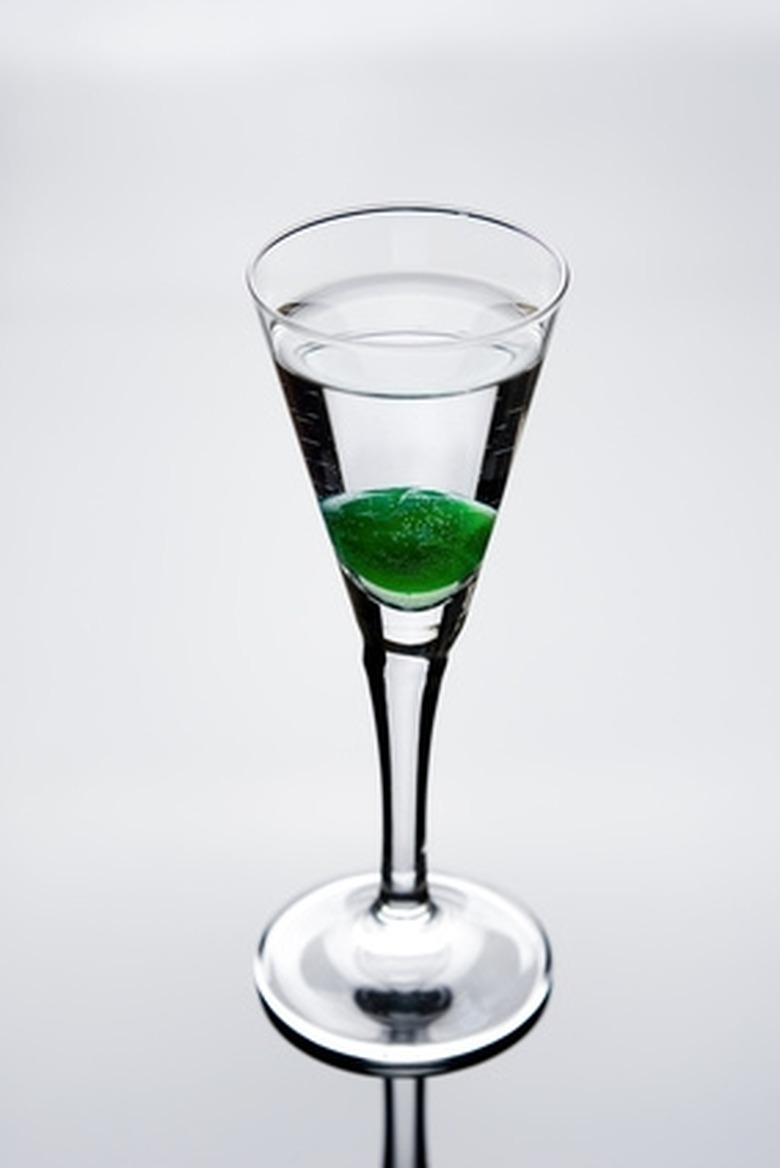How To Make Dry Ice Last Longer
Dry ice is exactly that: It changes directly from a solid state to gas, never becoming liquid. The unique process that dry ice goes through is called sublimation. The speed of the process is encouraged by the presence of heat. When heat is applied, the dry ice "melts," or turns from solid to gas. Dry ice will sublimate at least 5 lbs. every 24 hours. However, there are ways to slow the process and make dry ice last longer.
Step 1
Store it in a cooler. This will slow the sublimation of dry ice, because the insulated cooler keeps the air inside it very cool for a time. The dry ice will eventually melt, but much more slowly. Handle the dry ice using thick, heavy rubber gloves.
Step 2
Cover the outside of the dry-ice block with a few layers of newspaper, towels or a paper bag. This will add insulation to the block, slowing sublimation. Pack any airspace inside the cooler with these insulators, because the air can cause sublimation over time.
Step 3
Prepare for the delivery or pickup. Have the dry ice arrive close to the time that you will need it, to prevent the need to prolong sublimation. Once at the destination, do not open the cooler and packaging until you need the dry ice, to get the most out of it.
Step 4
Buy a large piece. Think about the amount of time for which you will need the dry ice. For every 24 hours, add 5 lbs. to the size of the piece you need, to ensure that you have enough. For example, if you need a 20-lb. block of dry ice to last three days, buy a 35-lb. block.
Things Needed
- Cooler
- Rubber gloves
- Towel
- Newspaper
- Paper bag
Warning
Do not place the dry ice in a freezer or refrigerator. The air flow inside will speed up sublimation and may damage the appliance.
Don heavy gloves when handling the dry ice, and never let it come in contact with your skin. A very serious burn will result.
Cite This Article
MLA
Davis, Jonita. "How To Make Dry Ice Last Longer" sciencing.com, https://www.sciencing.com/make-dry-ice-last-longer-4911744/. 24 April 2017.
APA
Davis, Jonita. (2017, April 24). How To Make Dry Ice Last Longer. sciencing.com. Retrieved from https://www.sciencing.com/make-dry-ice-last-longer-4911744/
Chicago
Davis, Jonita. How To Make Dry Ice Last Longer last modified March 24, 2022. https://www.sciencing.com/make-dry-ice-last-longer-4911744/
